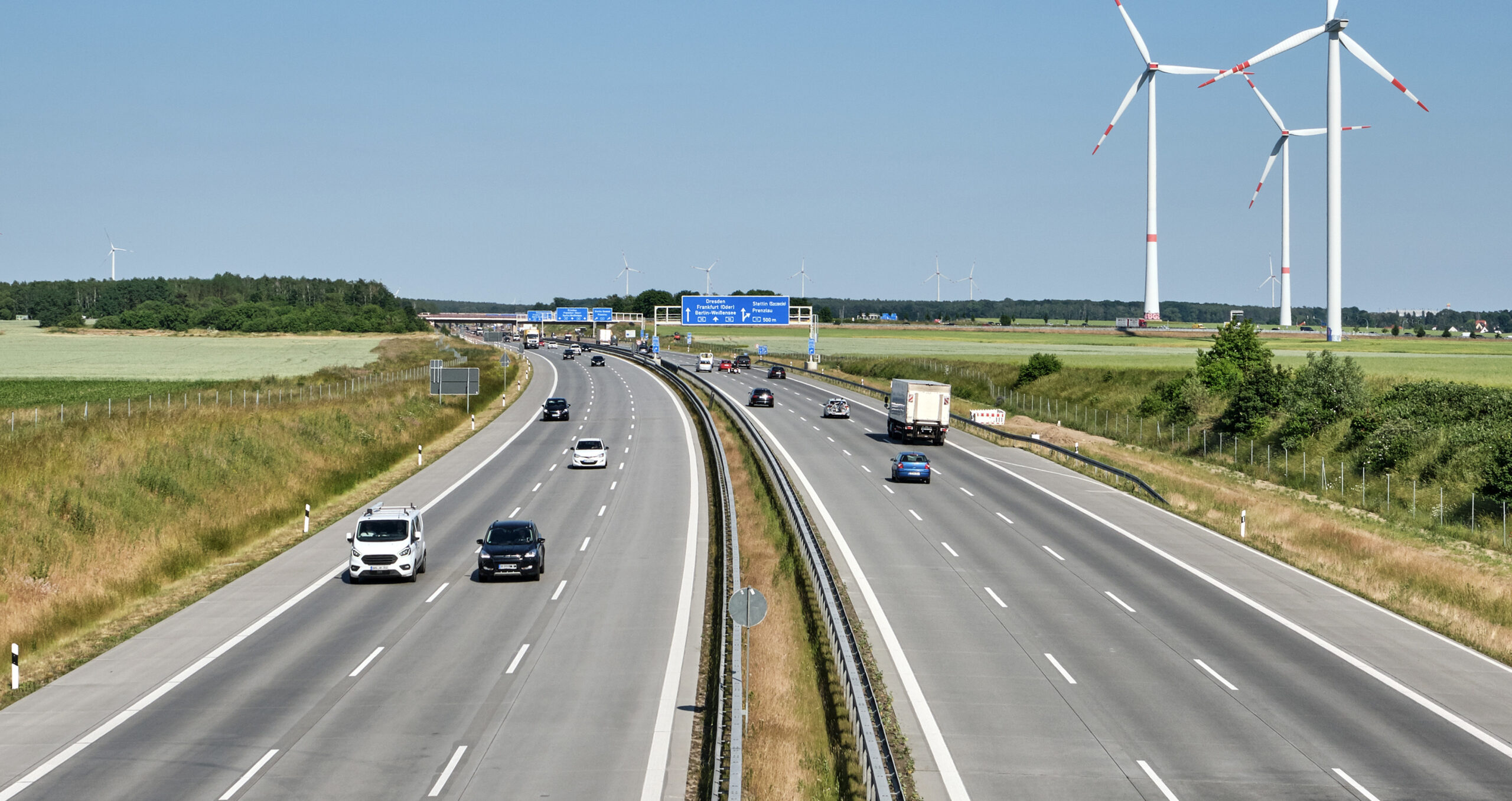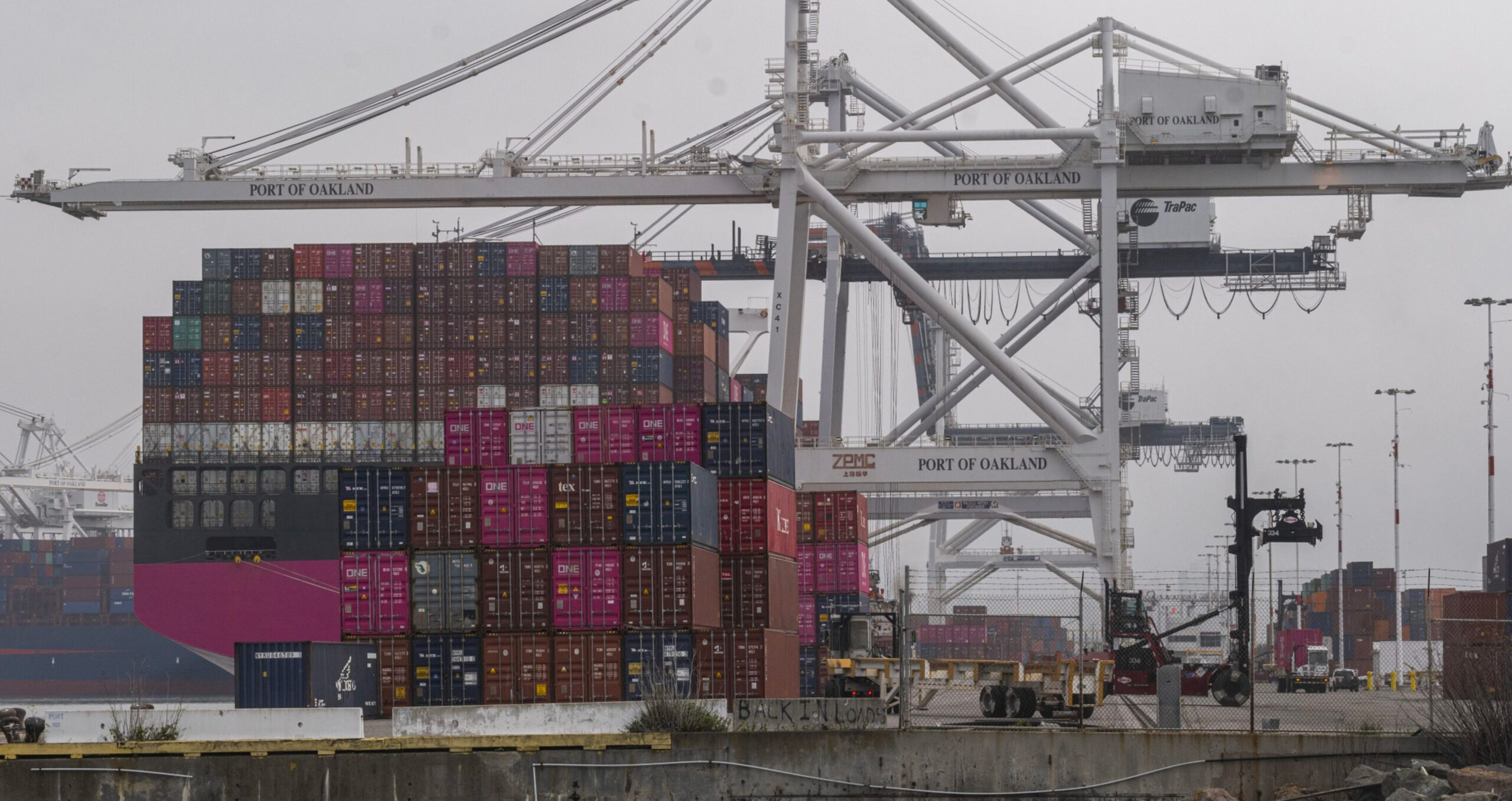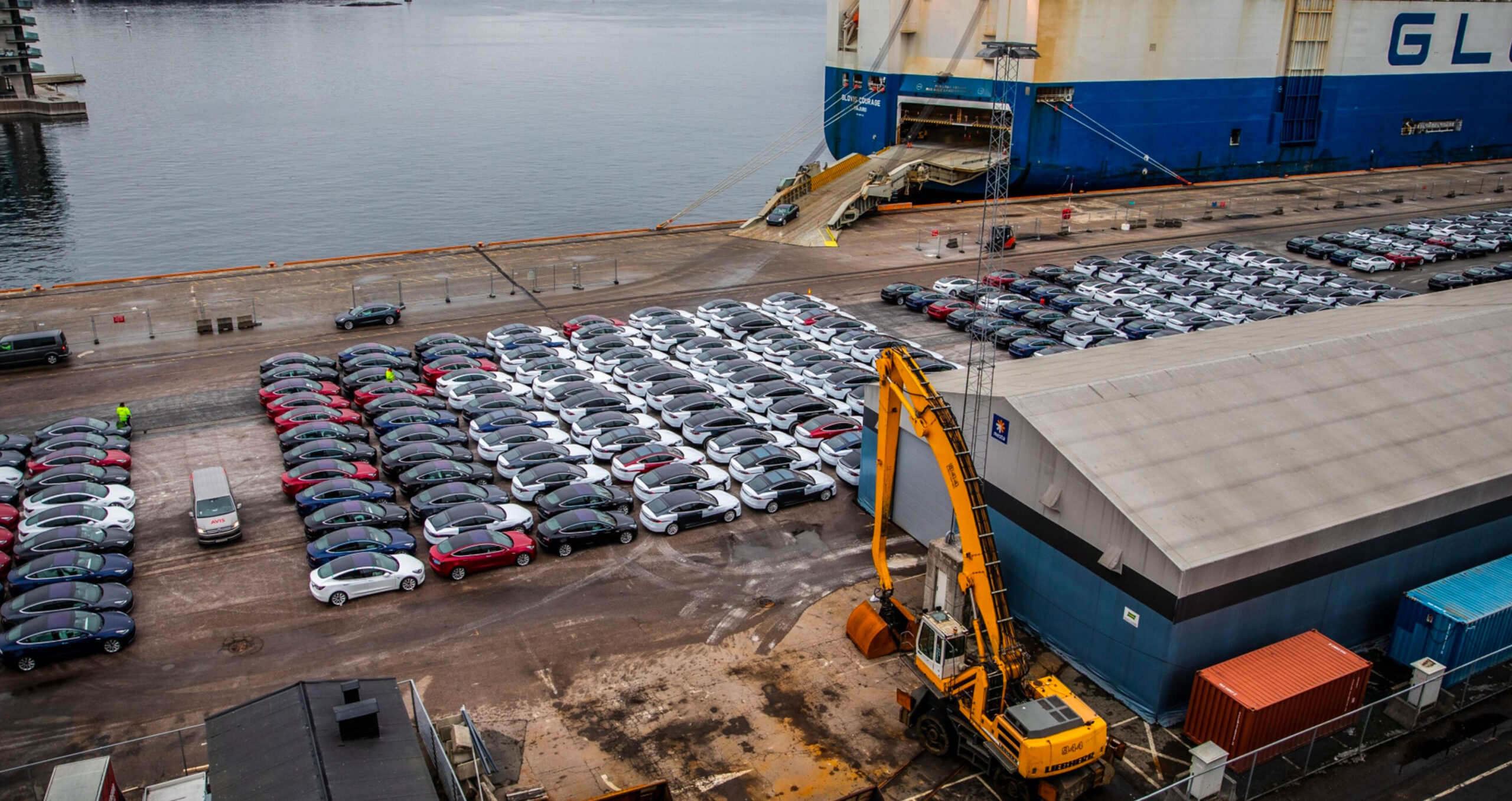
Explainer: Why transport is holding back Germany’s Energiewende

Tensions over how to best tackle emissions from the transport sector and differences of opinion between the various factions in the coalition government are slowing Germany’s move from fossil fuels to renewables
Germany was an early mover on the energy transition. Opposition to nuclear power in the 1980s and 1990s, followed by growing concerns about climate change, means renewable energy sources like wind and solar power are nothing new in Germany.
On the international stage, long-standing chancellor Angela Merkel was dubbed the Klimakanzlerin in 2007 after persuading G8 leaders to accept the Intergovernmental Panel on Climate Change’s science and agree to at least halve global carbon emissions by 2050 through binding targets.
Yet, Merkel was also a staunch defender of the German car industry domestically and during EU negotiations. This compromised attitude towards the transition continues to weaken Germany’s climate credentials today.
What are the main hurdles?
Defining where Germany is in 2023 in terms of climate action is “not so straightforward”, Niklas Höhne, co-founder of Germany-based think-tank NewClimate Institute and climate professor at Wageningen University in the Netherlands, tells Sustainable Views. The country is aiming for climate neutrality by 2045, five years ahead of the EU as a whole, and Höhne singles out “ bright spots, like the support for renewable energy from the coalition government”.
Transport, on the other hand, is the country’s “worst” blot on its climate copy book, he says. A relatively simple measure, like backing a speed limit for the autobahn would have been “a quick measure” if the country really was in “emergency mode” in terms of climate action, says Höhne. Germany has not declared a climate emergency, but many of its cities and towns have done so in line with the European parliament’s 2019 declaration.
Just 30 per cent of Germany’s 13,000 kilometres of motorways has some kind of speed limits, says the German Automotive Industry Association. Research published in the Ecological Economics journal in July 2023 suggests a speed limit of 130km per hour on all autobahns could bring around €300m in welfare savings from avoided carbon dioxide emissions.
Robert Habeck, the country’s economic affairs and climate action minister, comes from the Green party, which supports such a measure, but transport minister Volker Wissing, a member of the free-market Free Democrat party, is ready to fight tooth and nail to defend the “freedom” of drivers and to push back against plans that are likely to impact the fossil fuel industry.
Will Germany meet its 2030 climate targets?
In October 2023, after much fighting between the ruling coalition of the Social Democrats, the Green party and the Free Democrats, the German government finally adopted the final version of its long-due climate action programme aimed at putting the country on track to reach its 2030 climate target of reducing emissions by 65 per cent compared with 1990, and, ultimately, attaining climate neutrality by 2045.
The ambitious net zero target was set in Germany’s updated Climate Change Act in 2021.
The climate action programme admits, however, that even if fully implemented, the country would overshoot its 2030 target by about 200mn tonnes of CO2 emissions, largely because of the transport sector.
In terms of renewable energies, the programme remains ambitious, with the country aiming for 80 per cent of the power consumed to come from renewable energies by 2030 and for the electricity supply to be largely decarbonised by 2035. It also includes pledges to speed up planning and permit procedures, to change species protection rules to allow more wind power, and to make planning and construction easier to enable the expansion of the grid.
Recent research by industry body SolarPower Europe showed that Germany was one of the few EU countries to be making good use of the EU’s emergency renewable energy law, agreed to simplify permitting procedures and speed up the growth of wind and solar energy. Analysis from May 2023 by Aurora Energy Research revealed that the country has overtaken Spain as Europe’s leading solar photovoltaic market, as it aims to install 215 gigawatts of solar capacity by 2030.
“Germany is in the lead,” on renewables, says Höhne, even if he admits more needs to be done for the country to reduce its emissions in line with climate science.
Simon Müller, Germany director at think-tank Agora Energiewende, comes to a similar conclusion. “There are positive developments in the power sector compared to past programmes, but they are still not enough to meet climate targets and time is a crucial factor,” he tells Sustainable Views.
Where does Germany stand on e-fuels vs EVs?
While the EU, other European countries and most car manufacturers, including German ones, see electric vehicles as the replacement for fossil fuel passenger cars, the German government, pushed by Wissing and his party, sees a place for e-fuels. The climate programme commits the government to publish an e-fuels strategy.
E-fuels are seeing by many as an ineffective climate solution. Non-profit Transport & Environment says that unless synthetic fuels are manufactured in a way that is fully carbon neutral, vehicles running on them would generate about five times the emissions of EVs. The group also argues that their supply would require higher renewable energy generation in Europe than that needed to electrify vehicles.
Höhne describes e-fuels as a “false solution” and says the government’s support is “not understandable any more”, given German manufacturers support for EVs — Porsche is potentially the only remaining outlier, he suggests. Continuing down this road is “very bad for industrial policy”, he adds.
“From a psychological point of view, it is comforting to suggest you can simply swap in e-fuels for fossil fuels, but this doesn’t make sense from a systemic, a technological or a cost perspective,” says Müller. “E-fuels are not a viable option for wide-scale application, especially in new passenger vehicles.”
“Transport is an area where a lack of clarity is stopping consumers making choices that are consistent with the availability of energy sources in the medium and long term,” he continues. “The idea e-fuels will power new cars coming on to the market is a misconception.”
Instead of claiming e-fuels can be a solution for passenger cars, they should be being ramped up to decarbonise aviation, says Müller. “All the e-fuels currently planned globally would be needed to cover only 3 percent of German aviation demand by 2030.”
What other climate policies are being contested?
Heating is another area where the climate programme, and discussions around a new law, have disappointed campaigners and energy transition experts.
“Germany is coming out of a very polarised public debate on heating clouded by what appears, to some extent, to be a co-ordinated campaign of misinformation by vested interest groups and parts of the media,” Jan Rosenow, director of European programmes at energy think-tank Regulatory Assistance Project, tells Sustainable Views.
“Initial proposals to effectively phase out the installation of new fossil fuel boilers next year have been watered down and are now conditional on local heating plans not due for several years,” Rosenow says.
He also accuses the government of including “potential loopholes for technologies unlikely to ever play a significant role in heating, such as hydrogen boilers, because of the unavailability of hydrogen and the much higher cost”.
The climate action programme sets a target for 50 per cent of heat in buildings to be produced in a “climate-neutral way” by 2030, rather than simply setting a target to phase out fossil fuel boilers and replace them with electric heat pumps.
But Rosenow admits it is not all bad news. “Even the watered down version points towards a big shift to heat pumps and district heating,” he adds.
The programme stipulates that newly installed heating systems must be operated by at least 65 per cent of renewable energy from the mid to end-2020s, pledges legislation on municipal heat planning and district heating, and says the government will “facilitate the installation of at least 500,000 heat pumps annually from 2024” through incentives and training.
Müller uses the heating debate to underline a wider point, namely that the over-arching climate programme is not always aligned with legal discussions ongoing in Germany around parts of the energy transition.
Are politics getting in the way of science?
“In many cases, the recently agreed climate programme is a declaration of intent and implementation will rely on clarity about exactly what should be done when, and ongoing legislative discussions are not necessarily in line with the programme,” he says.
“For example, the heating law being discussed in parliament foresees only a 30 per cent share of renewables in existing district heating networks by 2030, while the programme sets a 50 per cent target by 2030,” explains Müller.
“A recent change in the law to allow some forms of waste to count towards the 30 per cent target means the target may have already been met,” he adds. “In short, there is not the level of ambition needed.”
Fossil fuels supply around 80 per cent of heating in Germany’s networks and around 14 per cent of homes are on district heating networks.
Hydrogen, notably green hydrogen from renewables, is a key component of the country’s energy transition plans. In July 2023, the government updated the National Hydrogen Strategy and doubled the 2030 target, aiming for 10GW of electrolyser capacity to produce green hydrogen in Germany and to make the country a “lead supplier for hydrogen technologies”. The nation is also starting to convert gas pipelines to carry hydrogen.
“The conversion of gas transmission pipelines for green hydrogen is unequivocally positive to help decarbonise industry,” says Müller, but he adds that “practically no studies see hydrogen as a viable option for home heating with individual boilers”.
“Plans for electrolysers are in place, but we need to have auctions to get them built up and running, and ensure they are built in the north of the country where there is most wind,” Müller continues. “At the same time, we need to systematically and jointly, with relevant partner countries, develop hydrogen import corridors from the North Sea and Iberia. The level of planning certainty and determination is not yet where it needs to be.”
The need to up the pace on climate change was well recognised by Merkel in 2021 before she stepped down as chancellor. “I am sufficiently equipped with scientific understanding to see that the objective circumstances mean that we cannot continue at this pace but that we have to move faster,” she said. German politics, however, make reaching full speed a significant challenge.
Similar Articles

In Charts: Europe must choose between Chinese EV imports or its emissions targets, says ECA

IMO talks dodge question on future distribution of shipping emission revenues


